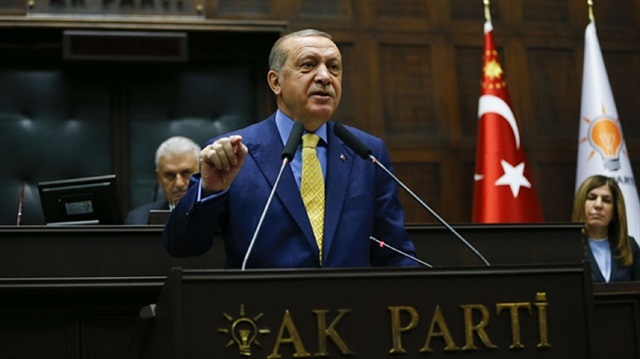
Turkey will impose further sanctions on the Kurdistan Regional Government (KRG) over its illegitimate independence referendum, President Recep Tayyip Erdoğan said on Tuesday.
"We are managing with some embargoes in northern Iraq for now, but if they don't come to their senses, this will continue increasingly," Erdoğan told lawmakers from his ruling AK Party.
“Any incident taking place in Syria and Iraq is not independent from us, they are linked directly to our domestic affairs," Erdoğan added.
The illegitimate Sept. 25 referendum saw Iraqis in KRG-controlled areas -- and in a handful of territories disputed between Erbil and Baghdad, including historical Turkmen city of Kirkuk and Mosul -- vote on whether to declare independence from Iraq's central government.
The referendum had been sharply criticized by most regional and international actors, many of whom had warned the poll would further destabilize the Middle East.
Erdoğan also evaluated Turkey's recent economic indicators, calling for a further decline in interest rates and attractive market rates for investors.
“Decline of interest rate is still not at desired point. If we cannot have the rates drop further then many troubles await us,” he said.
He added that investment and employment would not increase if interest rates hover at around 20 percent.
According to Undersecretariat of Treasury, annual simple and compound interest rates were 10.56 and 10.84 percent, respectively.
Turkey's consumer prices went up by 11.20 percent in September compared with the same month last year, according to the Turkish Statistical Institute (TurkStat).
In September, the monthly rate of change in the consumer price index was 0.65 percent, up from 0.52 percent in August.
The annual increase in consumer prices was 10.68 percent in August, which increased by 7.29 percent since December 2016.
Since the beginning of this year, the annual inflation saw the lowest level in January -- 9.22 percent -- and hit the highest level at 11.87 in April.
The government aims to reach 5 percent inflation in 2020, down from 8.5 percent in 2016, and is predicted to be at 9.5 percent by the end of 2017, in accordance with the country's medium-term program announced on Sept. 27.






